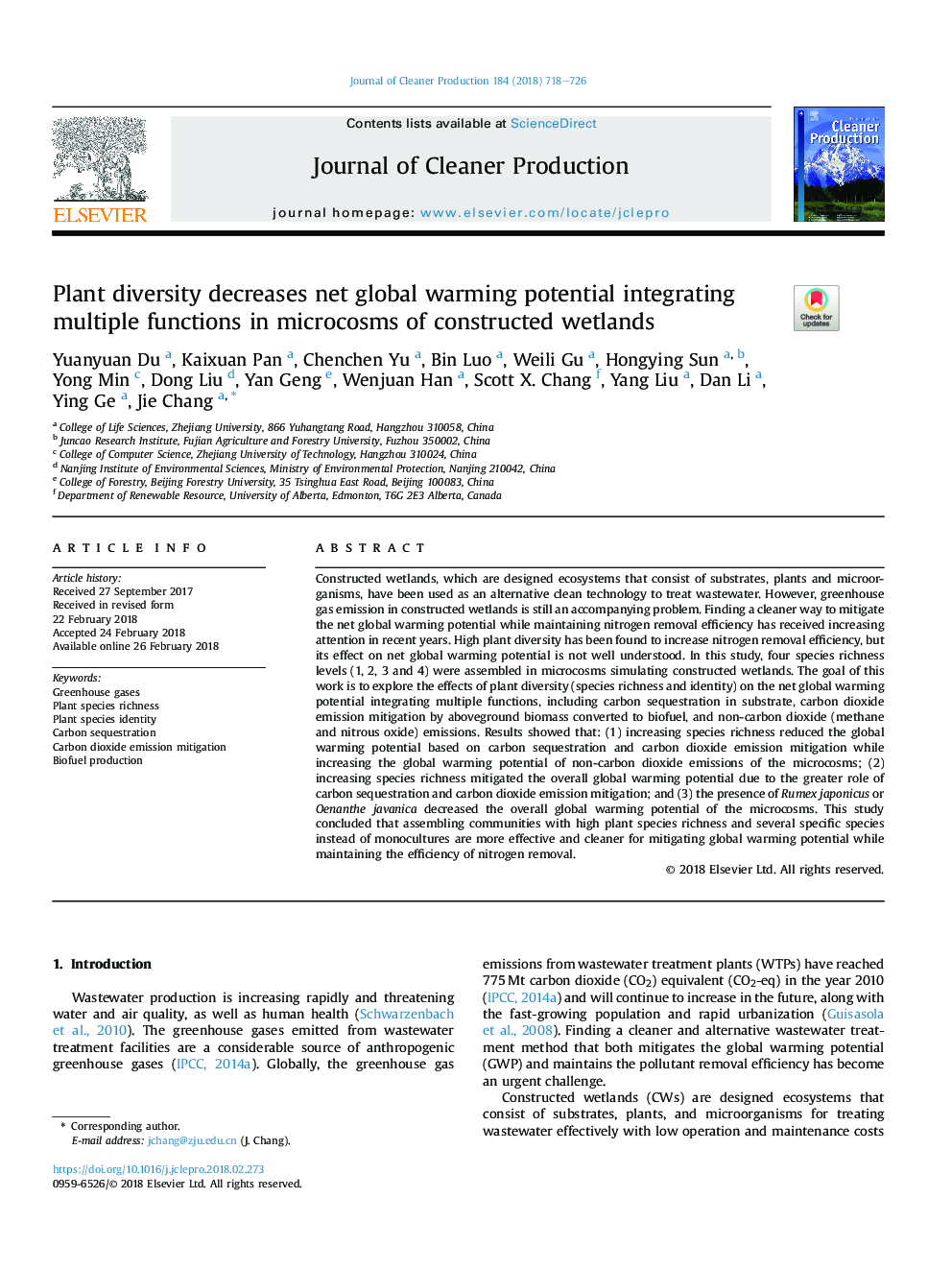| کد مقاله | کد نشریه | سال انتشار | مقاله انگلیسی | نسخه تمام متن |
|---|---|---|---|---|
| 8096808 | 1522069 | 2018 | 9 صفحه PDF | دانلود رایگان |
عنوان انگلیسی مقاله ISI
Plant diversity decreases net global warming potential integrating multiple functions in microcosms of constructed wetlands
ترجمه فارسی عنوان
تنوع گیاهی سبب کاهش پتانسیل گرم شدن کره زمین می شود و توابع چندگانه را در میکروکوزم های تالاب های ساخته شده به وجود می آورد
دانلود مقاله + سفارش ترجمه
دانلود مقاله ISI انگلیسی
رایگان برای ایرانیان
کلمات کلیدی
گازهای گلخانه ای، غنای گونه گیاهی، هویت گونه گیاهی، تداخل کربن، کاهش دی اکسید کربن، تولید سوخت های زیستی،
موضوعات مرتبط
مهندسی و علوم پایه
مهندسی انرژی
انرژی های تجدید پذیر، توسعه پایدار و محیط زیست
چکیده انگلیسی
Constructed wetlands, which are designed ecosystems that consist of substrates, plants and microorganisms, have been used as an alternative clean technology to treat wastewater. However, greenhouse gas emission in constructed wetlands is still an accompanying problem. Finding a cleaner way to mitigate the net global warming potential while maintaining nitrogen removal efficiency has received increasing attention in recent years. High plant diversity has been found to increase nitrogen removal efficiency, but its effect on net global warming potential is not well understood. In this study, four species richness levels (1, 2, 3 and 4) were assembled in microcosms simulating constructed wetlands. The goal of this work is to explore the effects of plant diversity (species richness and identity) on the net global warming potential integrating multiple functions, including carbon sequestration in substrate, carbon dioxide emission mitigation by aboveground biomass converted to biofuel, and non-carbon dioxide (methane and nitrous oxide) emissions. Results showed that: (1) increasing species richness reduced the global warming potential based on carbon sequestration and carbon dioxide emission mitigation while increasing the global warming potential of non-carbon dioxide emissions of the microcosms; (2) increasing species richness mitigated the overall global warming potential due to the greater role of carbon sequestration and carbon dioxide emission mitigation; and (3) the presence of Rumex japonicus or Oenanthe javanica decreased the overall global warming potential of the microcosms. This study concluded that assembling communities with high plant species richness and several specific species instead of monocultures are more effective and cleaner for mitigating global warming potential while maintaining the efficiency of nitrogen removal.
ناشر
Database: Elsevier - ScienceDirect (ساینس دایرکت)
Journal: Journal of Cleaner Production - Volume 184, 20 May 2018, Pages 718-726
Journal: Journal of Cleaner Production - Volume 184, 20 May 2018, Pages 718-726
نویسندگان
Yuanyuan Du, Kaixuan Pan, Chenchen Yu, Bin Luo, Weili Gu, Hongying Sun, Yong Min, Dong Liu, Yan Geng, Wenjuan Han, Scott X. Chang, Yang Liu, Dan Li, Ying Ge, Jie Chang,
